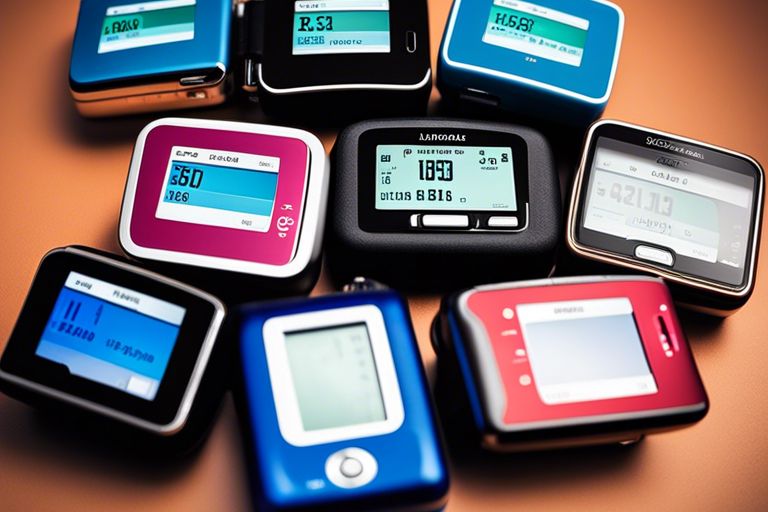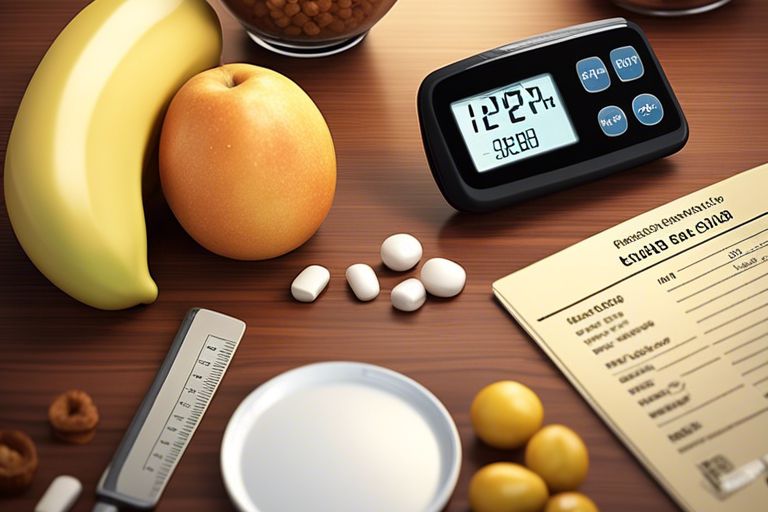Regular blood sugar monitoring is a crucial aspect of managing diabetes and ensuring overall health and well-being. Monitoring blood sugar levels on a consistent basis allows individuals to make informed decisions about their diet, medication, and lifestyle choices. By keeping track of blood sugar levels, individuals can prevent complications related to high or low blood sugar, such as diabetic ketoacidosis or hypoglycaemia. In this blog post, we will explore the significance of regular blood sugar monitoring in maintaining optimal health and managing diabetes effectively.
Key Takeaways:
- Regular blood sugar monitoring is crucial for managing diabetes effectively and avoiding complications.
- It helps in tracking how your body responds to food, exercise, and medication.
- Monitoring blood sugar levels can prevent hypoglycaemia (low blood sugar) and hyperglycaemia (high blood sugar) episodes.
- Regular monitoring enables early detection of any fluctuations in blood sugar levels, allowing prompt adjustments to treatment plans.
- Consistent blood sugar monitoring empowers individuals with diabetes to make informed decisions about their health and lifestyle choices.
The Role of Blood Sugar Monitoring in Diabetes Management
Understanding Diabetes: Type 1 and Type 2
Diabetes is a chronic condition characterised by high levels of sugar (glucose) in the blood. Type 1 diabetes is an autoimmune condition where the body mistakenly attacks the pancreas, leading to little or no insulin production. On the other hand, Type 2 diabetes is more common and occurs when the body becomes resistant to insulin or doesn’t produce enough insulin to maintain normal glucose levels.
How Regular Monitoring Can Prevent Complications
Regular blood sugar monitoring is crucial in diabetes management as it helps individuals keep track of their glucose levels. By monitoring regularly, individuals can make informed decisions about their diet, medication, and lifestyle choices to keep their blood sugar levels within a healthy range. This proactive approach can help prevent complications such as nerve damage, cardiovascular issues, and kidney problems associated with uncontrolled diabetes.
Blood Sugar Monitoring for Non-Diabetics
The Significance of Blood Sugar Levels in General Health
Regular monitoring of blood sugar levels is not only crucial for individuals with diabetes but also for non-diabetics. Fluctuations in blood sugar levels can impact overall health and wellbeing. High blood sugar levels can lead to an increased risk of heart disease, while low levels can cause fatigue and dizziness. By monitoring blood sugar levels regularly, non-diabetics can maintain optimal health and detect any abnormalities early on.
Detecting Prediabetes and Preventing Diabetes
Monitoring blood sugar levels in non-diabetics can help in the early detection of prediabetes, a condition where blood sugar levels are higher than normal but not high enough to be diagnosed as diabetes. By identifying prediabetes early, individuals can take steps to prevent the onset of diabetes through lifestyle changes such as diet modification and regular exercise. Regular blood sugar monitoring plays a vital role in preventing the progression of prediabetes to diabetes.
Tools and Techniques for Effective Blood Sugar Monitoring
Traditional Blood Glucose Meters
Traditional blood glucose meters are a common tool used by individuals with diabetes to monitor their blood sugar levels. These meters require a small drop of blood, usually obtained by pricking the finger, which is then placed on a test strip and inserted into the meter for analysis. While these meters provide accurate results, they only offer a snapshot of blood sugar levels at that moment in time.
Continuous Glucose Monitoring Systems (CGMS) and Advances in Technology
Continuous Glucose Monitoring Systems (CGMS) are innovative devices that provide real-time information about blood sugar levels throughout the day and night. These systems consist of a sensor inserted under the skin, which continuously measures glucose levels in the interstitial fluid. Advances in technology have led to the development of CGMS that can wirelessly transmit data to a receiver or smartphone, enabling users to track trends and make informed decisions about their diabetes management.
Developing a Blood Sugar Monitoring Routine
Creating a Personalized Monitoring Schedule
Creating a personalised blood sugar monitoring schedule is crucial to managing diabetes effectively. Consult your healthcare provider to determine how often you should monitor your blood sugar levels based on your type of diabetes, medication, activity level, and other individual factors. Regular monitoring will help you understand how your body responds to different foods, activities, and treatments, enabling you to make informed decisions about your health.
Integrating Diet, Exercise, and Lifestyle Changes
Integrating diet, exercise, and lifestyle changes into your blood sugar monitoring routine is important for optimal diabetes management. A balanced diet rich in whole foods, regular physical activity, and stress management can all impact your blood sugar levels. Tracking these factors alongside your blood sugar readings can provide valuable insights into what works best for you in maintaining stable levels and overall well-being.
The Importance of Regular Blood Sugar Monitoring
Regular blood sugar monitoring is crucial for individuals with diabetes to manage their condition effectively. By keeping track of blood sugar levels, patients can make informed decisions about their diet, medication, and lifestyle choices. Monitoring can help prevent complications such as nerve damage, heart disease, and vision problems associated with high blood sugar levels. It also allows healthcare providers to adjust treatment plans promptly to keep blood sugar levels in the target range. Consistent monitoring empowers individuals to take control of their health and improve their quality of life. Therefore, it is crucial for individuals with diabetes to prioritise regular blood sugar monitoring as a vital aspect of their healthcare routine.
FAQ
Q: Why is it important to monitor blood sugar regularly?
A: Regular blood sugar monitoring is crucial for managing diabetes effectively. It helps in understanding how your body responds to food, exercise, medication, and other factors that affect blood sugar levels.
Q: How often should blood sugar be monitored?
A: The frequency of blood sugar monitoring depends on individual factors such as the type of diabetes, treatment plan, and overall health condition. It is typically recommended to monitor blood sugar levels multiple times a day for most people with diabetes.
Q: What are the consequences of not monitoring blood sugar regularly?
A: Failing to monitor blood sugar levels regularly can lead to uncontrolled diabetes, which increases the risk of serious complications such as heart disease, kidney damage, nerve damage, and vision problems.
Q: What are the best times to check blood sugar levels?
A: Ideal times to check blood sugar levels include before meals, two hours after meals, before and after exercise, before bedtime, and whenever you suspect low blood sugar (hypoglycaemia) symptoms.
Q: How can regular blood sugar monitoring help in adjusting treatment plans?
A: Regular blood sugar monitoring provides valuable data that healthcare providers can use to make informed decisions about adjusting medication dosages, dietary recommendations, and lifestyle modifications to better control blood sugar levels and improve overall health outcomes.




